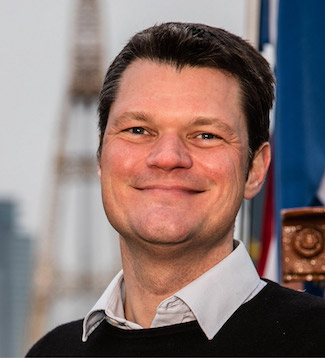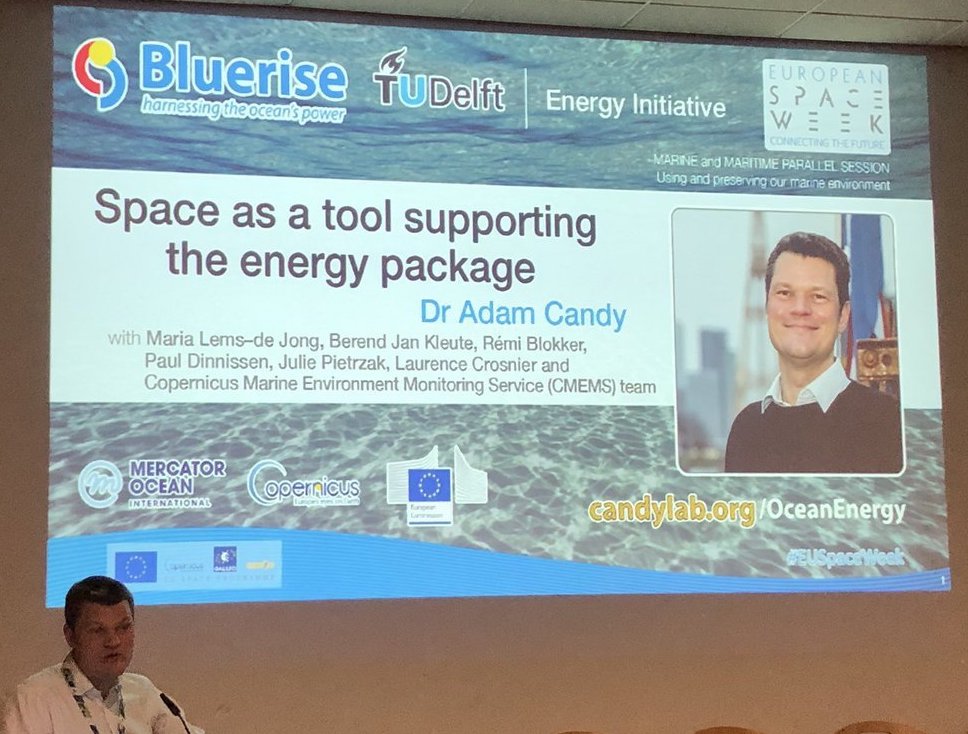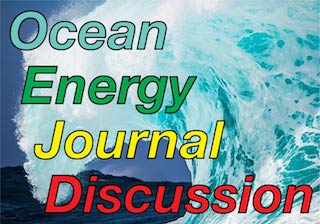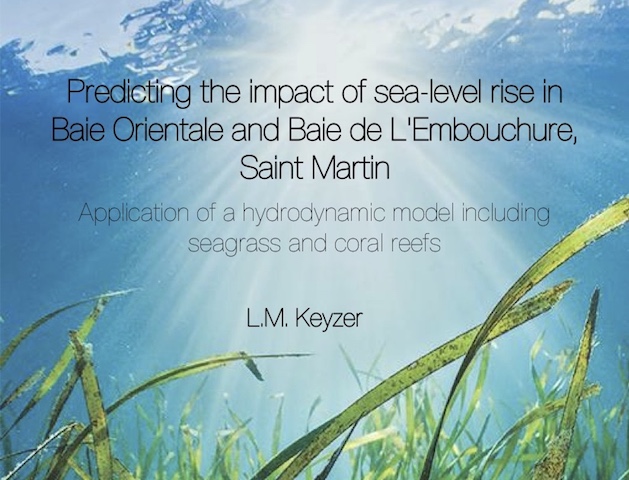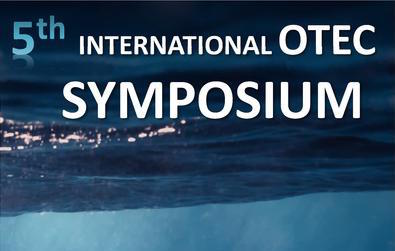Upcoming talk at the Ocean Energy Platform Lunch lecture series: Supercomputing a sustainable energy future from our oceans

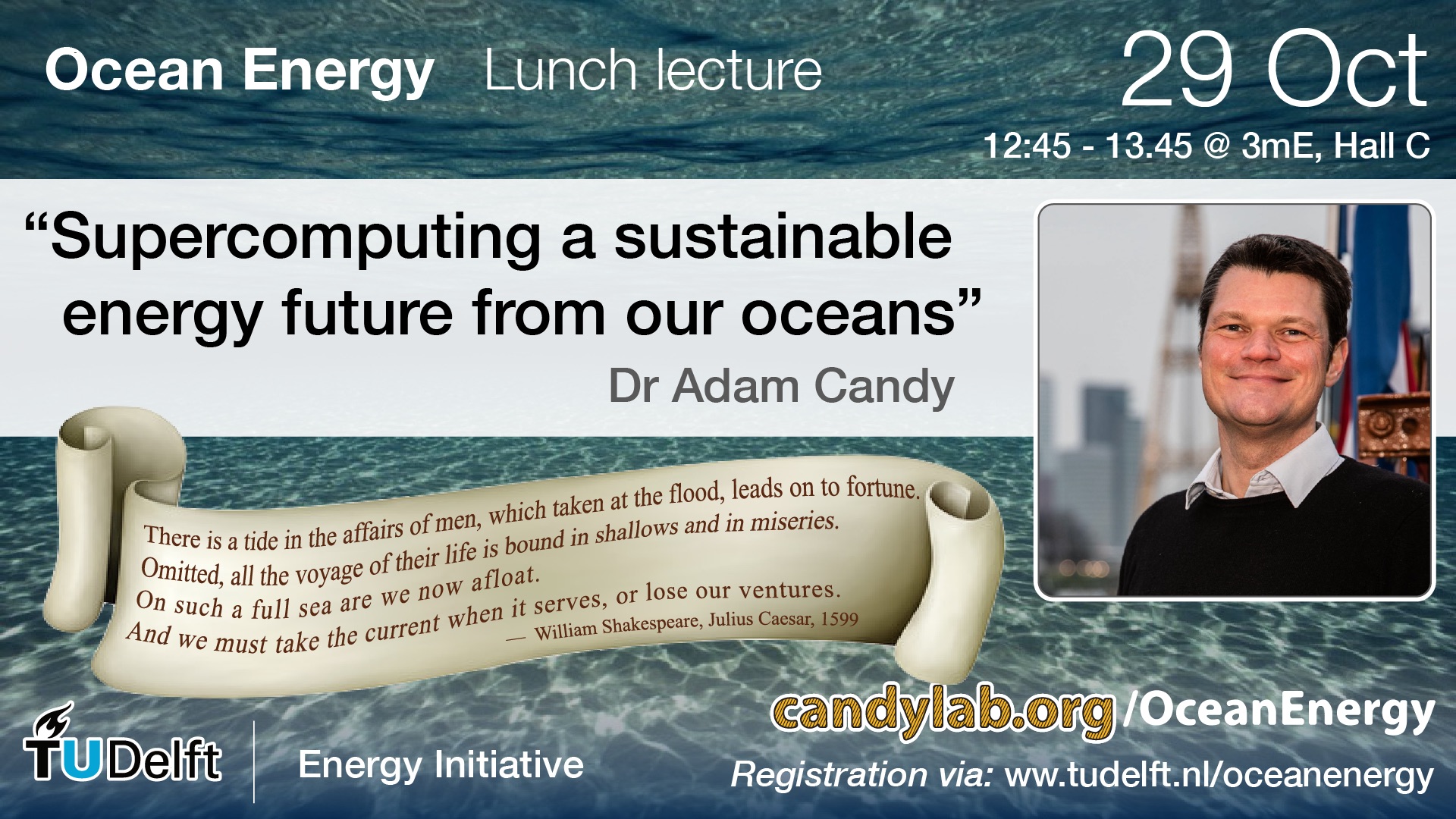
Title: Supercomputing a sustainable energy future from our oceans
Author: Dr. Adam S. Candy
Date: Monday 29 October 2018
Time: 12.45-13.45 (lunch included)
Location: Faculty 3mE, Collegezaal C, Mekelweg 2, Delft
If you want to join this lecture, please REGISTER via this form.
Abstract
The transition to sustainable energy sources is underway. A diverse mix is central to its success and whilst solar and wind have seen a phenomenal transformation in the past decade, ocean energy is in its infancy and yet to take off. Oceans cover more that 70% of the Earth’s surface and are a vast store of energy relative to our global demand. Just the annual increase in heat content alone of the upper ocean is over an order of magnitude larger than world total energy use.
Ocean Energy has significant advantages: unlike other renewables, the resource is continuous, high density, potentially unobtrusive and accessible, with the majority (80%) of populations living within 100km of the ocean. Moreover, unlike other sources, there is a diverse range of different physical ocean processes to tap into and a myriad of approaches to extraction for each. This has the advantage of potentially multi-function ocean energy devices (OEDs), working multiple sources and a high density of extraction. It is then, however, less clear which processes and technology are the best way forward, splitting efforts. This is complicated further by the hostile and remote physical environment of the ocean. Current challenges include:
- Prototype OEDs and notably Wave Energy Converters (WECs) are found not robust enough in practice.
- Lack of confidence in technology (and certification).
- Uncertainty in their interaction with the larger ocean environment and energy supply reliability.
In this presentation I will show how supercomputing with state-of-the-art (lab and in-situ validated) models can solve these current challenges for Ocean Energy — critical, if it is to become a serious sustainable contender. This includes: 1. New fluid-structure CFD models to capture real physical environment loads on OEDs (for resilience and to guide focus on the best approaches). 2. Optimised power takeoff (PTO) design for energy extraction specific to ocean processes 3. Multi-scale, seamless and fully integrated ocean-to-device assessments (for accurate 2-way coupling, validation in representative conditions, resource optimisations, scalability, future climate feedbacks and impacts to sediment transport, ecosystems and large scale hydrodynamics).
In the words of William Shakespeare (taken from the play Julius Caesar, 1599, via Alistair Borthwick):
There is a tide in the affairs of men,
Which taken at the flood, leads on to fortune.
Omitted, all the voyage of their life is bound in shallows and in miseries.
On such a full sea are we now afloat.
And we must take the current when it serves, or lose our ventures.
For more information, see https://candylab.org/OceanEnergy.
Bio
Adam Candy holds a PhD in Computational Physics from Imperial College London at the Department of Earth Science and Engineering, following past degrees from the Department of Applied Mathematics and Theoretical Physics at the University of Cambridge. Through his innovations in state-of-the-art multi-scale, adaptive mesh modelling of the ocean and fluid-fluid-structure coupling, he was awarded a prestigious invitation to the Physical Oceanography Dissertation Symposium in Hawaii, a biennial meeting for ~15 future leaders in physical ocean and Earth hydrodynamics.
During his career to date, he has held a James Martin Research Fellowship at the University of Oxford (21st Century Ocean Institute) and a J. Tinsley Oden Faculty Research Fellowship that took him to the University of Texas in Austin (Institute for Computational Engineering and Sciences) and MIT (Earth, Atmospheric and Planetary Sciences). He has co-wrote a successful EC FP7 project and been awarded significant computational time on the world’s largest supercomputers, including Dutch, UK and US national facilities. Adam’s research combines observations with state-of-the-art modelling approaches. He has integrated measurements from an autonomous submarine in hostile Antarctic environments and recently led hydrodynamic modelling and observation at sea for a 4 week expedition onboard the NIOZ RV Pelagia.

